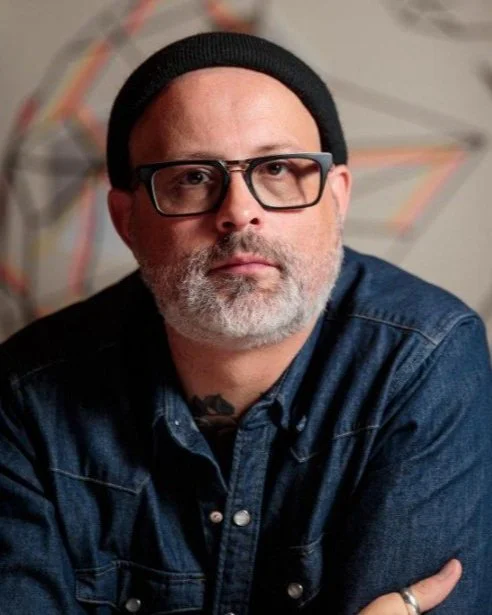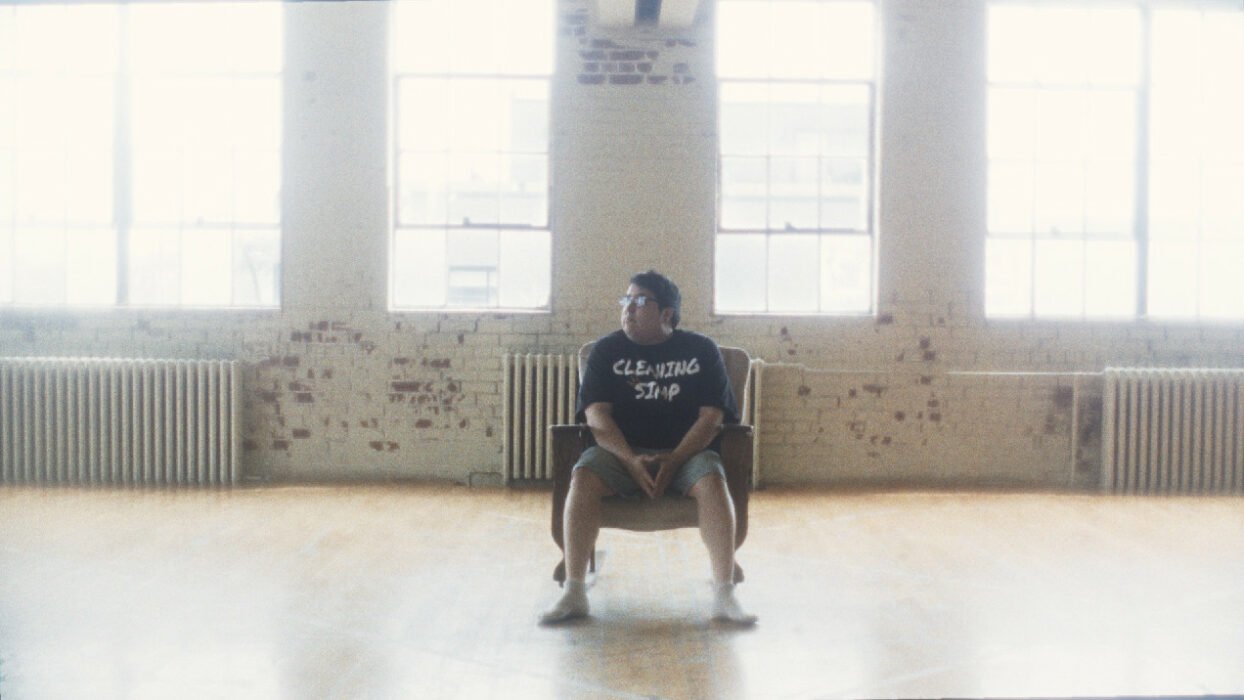At DOXA, Paul explores the loneliness and anxiety of a “cleaning simp”
Montreal filmmaker Denis Côté started out making a portrait of a shy BDSM worker and ended up capturing a generation’s encounter with the endless recursions of social media
The subject of Paul cleans for an impressive roster of female dominatrixes.
DOXA Documentary Film Festival screens Paul on May 6 at 8 pm at VIFF Centre. In Conversation with Denis Côté takes place May 5 at 4 pm at SFU Woodward’s Djavad Mowafaghian World Art Centre
DENIS CÔTÉ DOES NOT claim to know the subject of his new documentary, Paul. “You will come out of this film with a lot of questions,” he tells Stir in a call from his home in Montreal. “Paul is so full of contradictions and paradoxes. But filmmakers are hyenas.”
A must-see at this year’s DOXA Documentary Film Festival, from one of Quebec’s most provocative hyenas, Paul delves into the curious life of a chronically shy, overweight 30-something who works as a “cleaning simp” to an impressive roster of female dominatrixes. As Côté was told by one of the 10 or so dommes who appear in the film: “He’ll clean my kitchen, he usually does my bathroom, then we play.” The filmmaker adds: “He likes humiliation.”
Côté’s camera catches some of the “play”—light whipping, frequent employment as a human foot stool—but it’s incidental to the film’s governing interests. At some point in his life, Paul landed on “cleaning simp” as a way to combat his crippling social anxiety, faithfully documenting his weight loss battle and other intimate details on his Instagram account. The honesty is touching and it cuts through the pile-up of contradictions and paradoxes that follow.
“Paul doesn’t talk to men,” says Côté. “He doesn’t have any males in his life. He doesn’t interact with guys. I think he just wanted to get out of his comfort zone by participating in the movie. But there’s no way that he would become friends with me. It was very hard. I’m 6’4”, tattooed, and I have this strong, dominant energy, and for him it was very intimidating.”
Denis Côté
Over seven months of shooting, the filmmaker leaned on his female production manager to do the communicating with Paul, who admitted little interest in the process or the man who’d inserted himself into his life. Côté supplied Paul with some of his films “but he never watched them. He didn’t know if I was making a student film or a Hollywood production. He never asked any questions. He just went along.”
Arguably most curious is that Paul would surrender so much of his own narrative to another person. Perhaps this was another kind of manageable humiliation? Whatever the reason, Paul (the film) is really about a generation’s encounter with the endless recursions of social media. Paul carefully constructs himself inside his Instagram account, but online living is a trap. The conditions that arguably produce this man’s anxiety (also your kid’s) are the same conditions that provide the relief.
“It was a world that surprised me,” says Côté “I don’t have the same relationship with social media as a 30-year-old person. I thought I was making a film about a lonely guy who’s cleaning for dominatrixes. I thought that was my starting point and that’s enough to make an interesting documentary. Then I discovered two things. I instantly discovered that the extension of Paul’s arm is his phone. As long as he can find refuge and edit what he wants to show the world, it’s a safe space and it’s a prison at the same time. I thought that was fascinating. The other thing is: the nature of things for everybody in that film, including me, is transactional. These women either like Paul or they’re indifferent to him. They use him for their OnlyFans accounts. Paul is a prop. They get a free cleaning. They smile, they pretend to have fun with him. But when you scratch the service, everything is a transaction.”
If that sounds a little cold, the film is anything but. Paul is unknowable but also smart, creative, and easy to like, and the film respects everyone’s kinks. Côté hopes that Paul is received as “delicate and nonjudgmental.” It’s not about BDSM; it’s about loneliness and anxiety, and the commodification of our bodies and souls inside the technosphere. Judging from its recent premiere in Berlin, Côté succeeded in cracking a code he didn’t know he was looking for.
“I was really surprised because the audience was so young, and people in their 20s would come and they would not talk to me, really—I’m this 50-year-old white guy, I’m nothing—but they would jump on Paul and they made a hero out of him. ‘Thank you so much Paul, you’re talking about all the realities of our generation, I suffer from anxiety, I have ADHD…’ And they would not include me in the discussion so that means I was able to erase myself and make sure that the film was for him, and about him. And it’s maybe the first film I’ve made where you don’t feel Denis Côté too much in the film. I feel good about how I approached things.”
Sounds like Paul felt good too. ![]()
Paul.


























